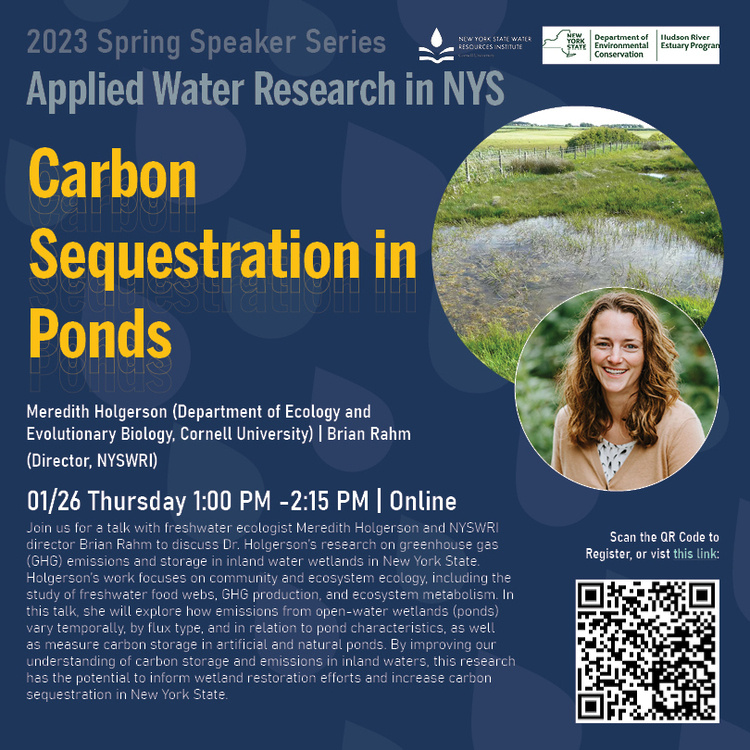Applied Water Research in NYS: Carbon Sequestration in Ponds

Abstract:
New York State passed climate change legislation in 2019, including the creation of a statewide greenhouse gas (GHG) budget from natural and working lands, including inland waters. This work examines GHG emissions and storage in inland water wetlands, which are not yet included in state efforts but are of interest to NYS Department of Environmental Conservation (DEC) Office of Climate Change. We focus specifically on open-water wetlands (i.e., ponds), which are naturally abundant in NYS with artificial ponds growing in number for restoration, agriculture, and stormwater purposes. Ponds both emit and store GHGs, but net fluxes are unknown. Our study addresses key questions regarding how emissions vary temporally (e.g., seasonal and diel time scales), by flux type (e.g., methane emissions from diffusive vs. bubble pathways), and in relationship to pond characteristics (e.g., depth, vegetative cover, water column mixing). Additionally, carbon storage in ponds is poorly studied, and this project will measure carbon storage from both artificial and natural ponds. Overall, these efforts will improve the current knowledge gap regarding inland water carbon storage and emissions, and will inform the extent to which wetland restoration can provide additional carbon sequestration for NYS.
Speaker Bios:
Dr. Meredith Holgerson is a freshwater ecologist studying the response of ponds and lakes to environmental change. Her research program focuses on community and ecosystem ecology, and includes studying freshwater food webs, carbon and oxygen cycling, and sediment-water column connections. In collaboration with local, regional, and global partners, Holgerson and her team use field studies and experiments to understand interactions between organisms and ecosystem processes, and to scale local observations to global patterns.
From upstate NY, Brian Rahm started with NYSWRI in 2010 by focusing on the intersection of engineering, science, and policy associated with potential shale gas extraction in New York state. He has since worked on water resource infrastructure management and policy more generally, and enjoys the challenge of addressing the state's water issues via interdisciplinary research, institutional capacity building, and local stakeholder engagement.


